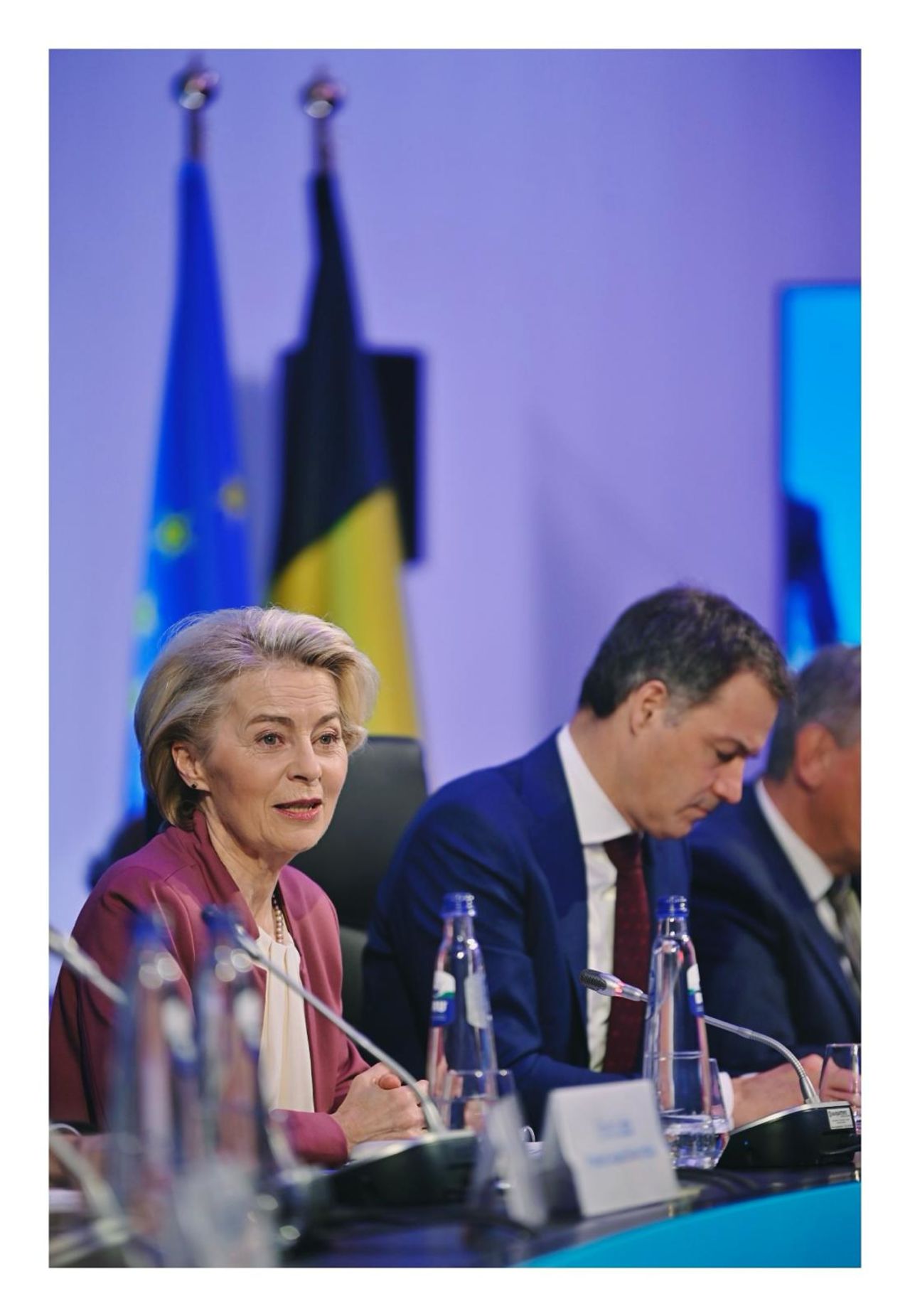Sir Jim Ratcliffe, Chairman and Founder of INEOS, has today written to Ursula von der Leyen, President of the European Commission, warning that Europe is “sleepwalking towards offshoring its industry, jobs, investments, and emissions.”
Sir Jim’s letter follows his attendance at The European Industry Summit today in Antwerp, where 73 industry leaders representing almost 20 industrial sectors presented ‘The Antwerp Declaration for a European Industrial Deal’ to Ms Von der Leyen, President of the European Commission and the Belgian Prime Minister, Alexander De Croo.
In his letter to President von der Leyen (see Notes to Editor for a copy of the letter), Sir Jim said:
- The European chemicals sector “struggles to compete” with other markets such as the the USA, China, and the Middle East,
- Carbon taxes have been successful in “driving away investment” from Europe.
- These taxes have encouraged imports from countries without carbon taxes which has increased the carbon footprint of Europe.
- In contrast the USA have used the carrot not the stick, which provides half a trillion dollars of government incentives for technologies that improve the carbon footprint of the USA. This encourages investment in cleaner technologies.
- Once the largest chemical sector in the world, Europe has seen no large builds for 20 years.
- It is “impossible” to renew Europe’s 30-50-year-old chemical base with cleaner technology, as is happening in the US.
- There will be “little left” if the European government does not address the high energy costs, carbon taxes and lack of renewal that impacts the chemicals sector in Europe.
Sir Jim points to first-hand experience of the flawed European approach:
- INEOS demonstrated its faith in European chemicals with its €4bn investment in the building of a new petrochemicals facility in Antwerp.
- The facility is superior to any other comparable petrochemical facility worldwide in terms of carbon emissions and has 10,000 workers employed on the project.
- The permit was pulled away and withdrawn one year after it was granted, due to its nitrogen emissions, the equivalent of one family barbecue in a nature reserve once a year.
In May 2014, Sir Jim Ratcliffe wrote to the then President of the European Union Jose Manuel Barroso, expressing his deepest concerns about the future of the European chemical industry. Sadly, many of his fears have subsequently been proved correct as the industry now finds itself in the current situation.
Action is needed to revitalise Europe's industrial landscape by putting the EU Industrial Deal, complementing the EU Green Deal, at the forefront of Europe’s Strategic Agenda 2024 - 2029. Companies and organisations are invited to support Europe’s basic industries by co-signing the declaration at: The Antwerp Declaration
ENDS
Press contacts
Richard Longden (Richard.longden@ineos.com) +41 7996 26123
Nathalie Meert (nathalie.meert@ineos.com) + 32 491 35 91 67
Andrew McLachlan (andrew@mediazoo.tv) +44 7931 377162
Alex Williams (alex.williams@mediazoo.tv) +44 7793 207325
Notes to Editors: Sir Jim Ratcliffe’s open letter to Ursula Von der Leyen 20th February 2024.
Ursula Von der Leyen
President European Commission
European Commission
Rue de la Loi 200
B-1049 Brussels,
Belgium
Europe is sleep walking into off-shoring its industry, jobs, investment and emissions.
Today in Antwerp I joined business leaders and politicians from across Europe to commit to and sign The Antwerp Declaration for a European Industrial Deal. I did this because urgent action is needed, to stop Europe from sleepwalking into offshoring its industry, jobs, investment, and emissions.
The chemical industry has long been one of Europe’s most important sectors with revenues of one trillion Euros and 20 million jobs, if both direct and associated employment are included. It also has immense strategic importance as it guarantees security of supply for so many key raw materials for Europe’s manufacturing base.
But European petrochemicals has long been left behind by the USA, China and the Middle East. It struggles to compete. Energy costs have soared as Europe turned its back on on-shore oil and gas and nuclear. US energy costs, both gas and electricity are one fifth of Europe and it is no longer reliant on imported energy. Europe is the opposite.
Carbon taxes have been successful in driving investment away and increasing the burden on manufacturers. These taxes have encouraged imports from countries without carbon taxes, which has increased the carbon footprint of Europe as it now relies on suppliers with inferior carbon emissions overseas.
In contrast to Europe, the USA have used the carrot not the stick. They have passed the Inflation Reduction Act (IRA) which provides half a trillion dollars of government incentives for technologies that improve the carbon footprint of the USA. This approach encourages investment in cleaner technologies.
And the solution is clearly not to build modern state-of-the-art new facilities as INEOS has discovered. Its demonstration of faith in European chemicals with its 4 billion Euro new petrochemical facility in Antwerp with the most superior emissions world wide has met with Europe’s flawed permitting system . One year after being granted a permit, with 10,000workers employed worldwide on the project, the permit was pulled away and withdrawn. Why ? Because nitrogen emissions were the equivalent of one family BBQ in a nature reserve once a year.
So renewal of Europe’s 30-50 year old chemical base with new cleaner technology as is happening in the USA is impossible.
The trajectory for European chemicals has been significantly declining now for 20 years. Once the largest chemical sector in the world it has seen no large builds during this time unlike the USA, China and the Middle East.
Unless the European government addresses high energy costs, carbon taxes and renewal there will be little left in another 20 years.
Yours faithfully,
Sir Jim Ratcliffe
Chairman
INEOS
